(Dan Tri) - According to Deputy Minister of Labor, Invalids and Social Affairs Nguyen Ba Hoan, the biggest obstacle to sending Vietnamese workers abroad is the source of recruitment. Many foreign partners proactively seek workers but still encounter obstacles.
Black market for labor trafficking
At the seminar "Improving the quality and efficiency of sending Vietnamese people to work abroad" organized by Nguoi Lao Dong newspaper on the morning of December 18, Deputy Minister of Labor, Invalids and Social Affairs Nguyen Ba Hoan said that during his recent working trip to Japan, he realized that the biggest obstacle when sending Vietnamese personnel to work abroad was the source selection process.
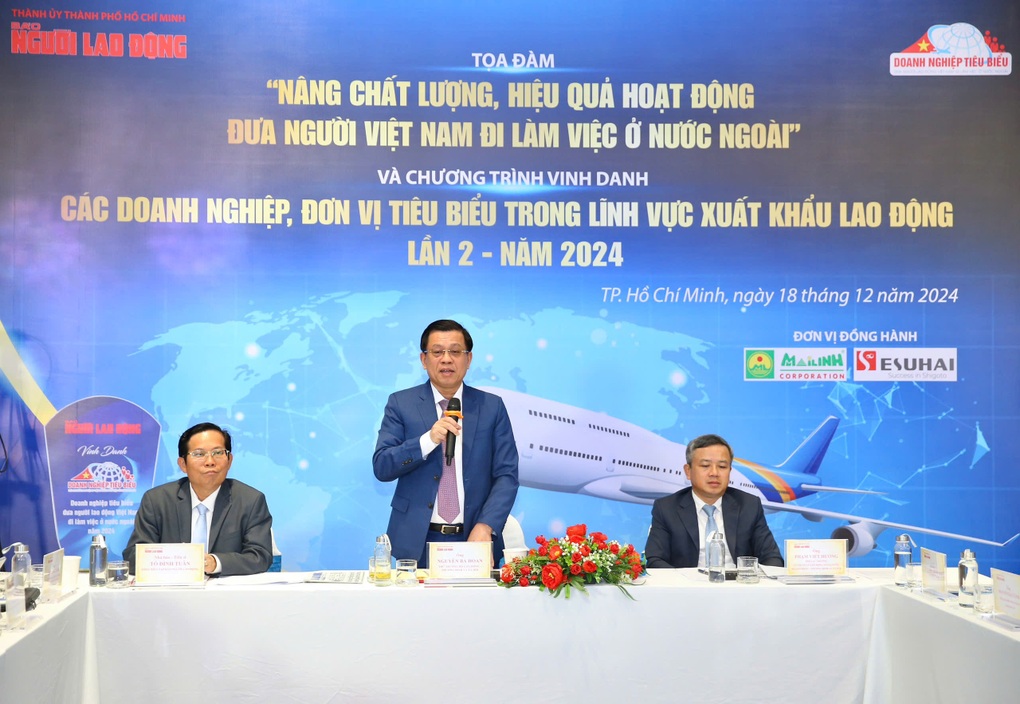
Deputy Minister of Labor, Invalids and Social Affairs Nguyen Ba Hoan speaks at the seminar (Photo: Hoang Trieu).
"In the past, it was difficult for us to have contracts to recruit workers from abroad. But now, when we have contracts, the market cannot meet the demand for human resources. This makes it difficult for the entrusted enterprises to commit to the time schedule in recruiting human resources for foreign partners. We need to seriously look at the problems to find solutions together," the Deputy Minister of Labor, Invalids and Social Affairs emphasized.
According to Deputy Minister Nguyen Ba Hoan, to date, Vietnam has about 450 licensed service enterprises sending workers to work abroad. Compared to the number of only about 100 enterprises in the period 1990-2000, this number has increased significantly. It is predicted that in the near future, the number of licensed enterprises may reach 500 units.
Besides, up to now, about 700,000 Vietnamese workers are working in 40 countries and territories, with more than 30 different occupational groups.
In fact, the number of Vietnamese workers going abroad has grown steadily in recent times due to the increasing number of service enterprises participating. Looking at each enterprise individually, especially the "leading" units, they are "running out of steam" as the number of workers sent abroad tends to decrease compared to before.
Not only that, the Deputy Minister also pointed out the problem of illegal labor brokerage centers and intermediary units participating in brokerage.
"In these cases, by the time they receive the contract, the workers are usually very tired because the process is very difficult and they have to pay a very high fee," said the Deputy Minister.
With more than 26 years of experience in the field of sending Vietnamese human resources abroad, Ms. Duong Thi Thu Cuc, General Director of Saigon International Group Company Limited (Saigon Intergco), acknowledged the shortcomings mentioned.

Ms. Duong Thi Thu Cuc, General Director of Saigon International Group Company Limited (Photo: Hoang Trieu).
"While the authorized companies lack human resources, the companies that do not have the function of sending workers abroad hold many workers. From there, we are forced to spend money to buy back their resources.
In addition, many companies that are not authorized or authorized to send workers abroad gather workers and then "sell" them for 20-30 million VND/person," said Ms. Duong Thi Thu Cuc.
Competition for labor
To attract human resources to meet the needs of foreign enterprises, the General Director of Saigon Intergco believes that enterprises need to put the interests of workers first.
Ms. Cuc stated the principle that when working with foreign partner unions, we must always aim for the most beneficial criteria for the workers being sent. Previously, the income of Vietnamese workers in Japan was 15 man/month (approximately 25 million VND), but now the minimum requirement is 18 man/month (approximately 30 million VND).
"In addition, the accompanying conditions also ensure overtime or at least reduce wages, electricity, and water for Vietnamese workers to ensure income. The union also needs to be responsible for quickly resolving all issues for workers," Ms. Cuc said about the conditions set out as premises to ensure workers feel secure working under the contract, not counting absconding or going abroad to work illegally.
Labor supply companies are also competing. During the training process, many companies offer cash rewards for students who achieve high levels of Japanese (N3, N4) or tuition support to reassure workers. This will make attracting workers to work abroad more sustainable.

Mr. Nguyen Duc Nam, Chairman of the Board of Directors of International Manpower Supply and Trade Joint Stock Company (Photo: Hoang Trieu).
Talking about how to attract human resources, Mr. Nguyen Duc Nam, Chairman of the Board of Directors of International Manpower Supply and Trade Joint Stock Company (SONA), said that first of all, businesses must orient their operations based on the interests of employees.
"When negotiating, we always choose partners who are willing to pay at least 1,000-1,200 USD/month for workers. In addition, welfare regimes must be clear, living conditions, food and accommodation must be guaranteed," Mr. Nam cited.
According to statistics, currently more than 650,000 Vietnamese workers are working in more than 40 countries and territories, sending about 3.5 to 4 billion USD in remittances each year.
Workers' income is quite high and stable, ranging from 1,200-1,600 USD/month in the Japanese and Korean markets; from 800-1,200 USD/month in Taiwan (China) and European countries; from 700-1,000 USD/month for skilled workers, and from 500-600 USD/month for unskilled workers in the Middle East and African markets.
Most recently, according to the report of the Department of Overseas Labor Management, in the first 10 months of 2024, the total number of Vietnamese workers working abroad was 130,640, reaching 104% of the annual plan. The key markets receiving many Vietnamese workers continue to be Japan, Taiwan, South Korea, Singapore and some European countries.
Source: https://dantri.com.vn/lao-dong-viec-lam/doanh-nghiep-nhat-han-trai-tham-don-nhan-luc-viet-ma-tuyen-mai-khong-du-20241218125805574.htm


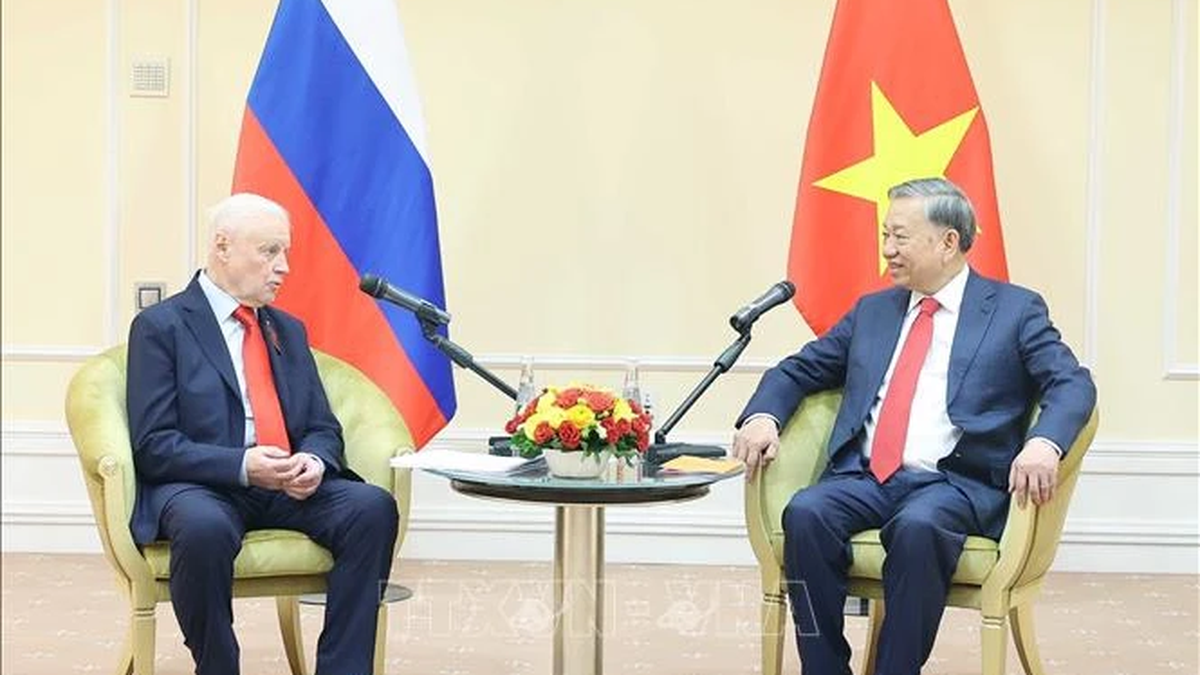


![[Photo] Prime Minister Pham Minh Chinh chairs Government Standing Committee meeting on Gia Binh airport project](https://vphoto.vietnam.vn/thumb/1200x675/vietnam/resource/IMAGE/2025/5/10/6d3bef55258d417b9bca53fbefd4aeee)


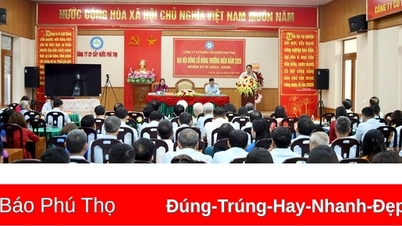



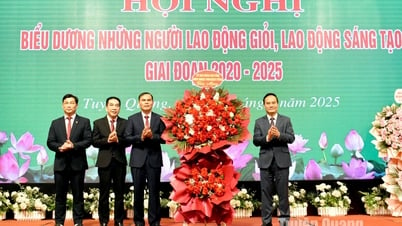
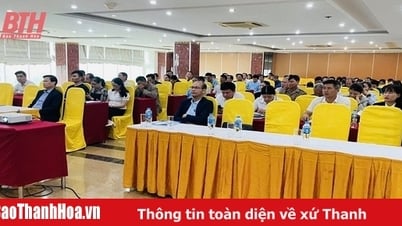
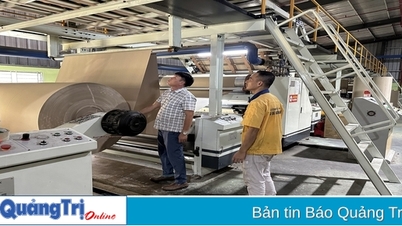







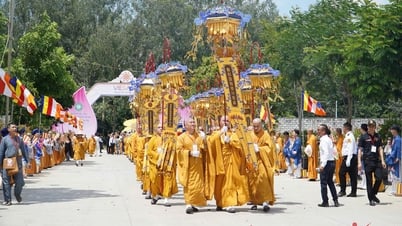







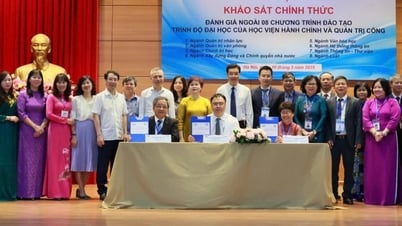























































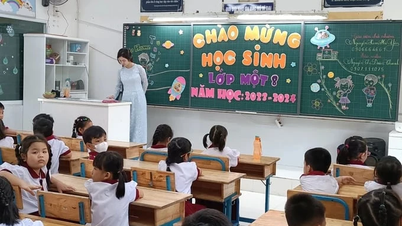













Comment (0)